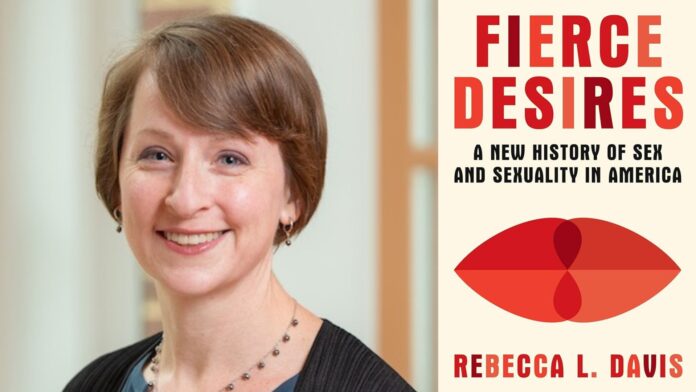
On Sept. 3, the John J. Wilcox, Jr. Archives of the William Way LGBT Community Center hosted a launch of Rebecca L. Davis’s new book, “Fierce Desires: A New History of Sex and Sexuality in America.”
Davis, a history professor at the University of Delaware, specializes in gender, sexuality and religion in the U.S. She was joined in her talk at William Way by David Acosta, prominent Philadelphia activist and arts advocate. She chose to hold her book release at the center because the Archives was a valuable historical resource while researching the book.
In explaining how the book came to be written, Prof. Davis admitted that, given the time period she was covering (from the Revolutionary era to the present), she was faced with an excess of information, causing her manuscript to balloon out of all proportion.
Not wanting to, in her words, “write an encyclopedia or an academic textbook,” she was faced with the dual task of deciding what to cut and figuring out how to present the complicated history as a coherent story for a mainstream non-academic readership. She decided it was best to focus on the stories of individuals as a metaphorical clothesline, pegging historical items on the line, giving the whole story content.
In her book, Prof. Davis pays a great deal of attention to LGBTQ+ stories in history, acknowledging that “LGBTQ” as a defining mode of self-identification is very much a modern invention. In those days, two women who loved each other passionately did not think of themselves as “lesbian;” and two men who were devoted to each other as partners didn’t think of themselves as “gay.”
Prof. Davis also pointed out that one aspect of sex and sexuality in U.S. history that has usually been overlooked has been the issue of race. She was determined to tell the story of race in regard to the history of sex and sexuality in America.
Acosta pointed out that Philadelphia was mentioned several times in the book. Prof. Davis agreed, explaining that many of the roots of the modern gay rights movement spread from Philadelphia “even though Stonewall claims all the credit.” One example she cited was the protest at Independence Hall organized by Barbara Gittings, held before Stonewall.
She also mentioned early longtime activist Kiyoshi Kuromiya, born in a Japanese internment camp during World War II, who ended up being present at so many important events (including the Independence Hall demonstration) that he was Philadelphia’s real life version of Forrest Gump.
Prof. Davis ended her talk taking questions from the audience, who filled the William Way meeting room. She spoke about the impact of Hugh Hefner and the Playboy Foundation, the difficulty inherent in formulating the history in her book for a school curriculum, how binary language still does not adequately address the trans experience, among several other topics.
For more information on Rebecca L. Davis and her book, “Fierce Desires: A New History of Sex and Sexuality in America,” visit rebeccaldavis.com.